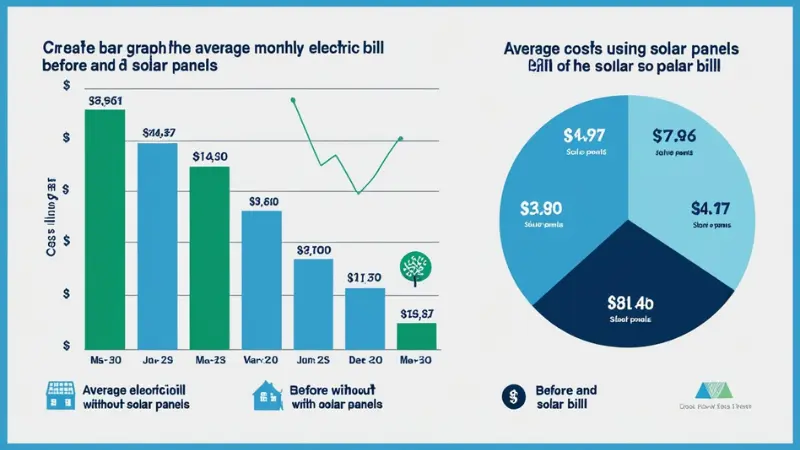Revealed: The True Average Monthly Electric Bill with Solar Panels
Updated: 06 Sep 2024
58
Are you frustrated in the sense that you used to see your average monthly electric bill with solar panels but is not delivering the money-saving aspect as expected? Others experience high energy bills issues despite installing solar panels in their homes. This article aims to help you understand how it is possible to make a real change in the amount of the monthly bill by increasing the efficiency of solar systems and using different kinds of saving options. We will go into detail and focus on engaging and valuable tips and tricks that will enable you to get the most out of your solar panels investment while bringing down your energy expenses significantly.

What is the average monthly electric bill with solar panels?
When installing solar panels the average monthly electric bill decreases as compared to the average traditional energy sources. Compositely, it was found that homeowners with the addition of solar panels can see these bills range between $84- $121 depending on the size of the system and the amount of energy consumed. This has been deemed as a massive cut which goes a long way in explaining why solar is financially viable for many homes.
How much can I save a month with solar panels?
Therefore a homeowner gains an average of $125- $150 per month or an equivalent of $1,500 per year from the use of the solar panels. The degree to which depends on location, usage, and size of the system, but most actually see a drop of between 60-80% in their electricity costs.
How long does it take solar panels to pay for themselves?
In the case of solar panels, the payback period is between three to fifteen years, based on issues such as installation costs, energy tariffs, and rebates offered. While in some states with high electricity tariffs or better incentives, the payback period could range between 3 to 7 years; in some other places, it is 12 to 26 years.
Any electric bills charge by solar panels?
Well, that is true, most homeowners still have an electric bill even when they have installed solar panels. Although they will help you cut down your energy costs, you will still need to cater for some amount. This means that if there are service fees, days that are not very sunny, and usage is high during non-sunny hours then there may be a remaining balance. Also, do note that if your system is connected to the grid, you will have to pay for any power that you use that is not provided by your solar panels.
How do solar panels change your electric bill?
Solar panels with your electricity bill allow you to lessen the reliance on the supply by converting the rays to power. Any energy produced by your solar panels is used to supply your home directly and therefore reduce reliance on the utility company for electricity. During sunny days, any extra power produced can be fed back into the grid, in this way, you might earn credits to cover your electrical expenses in the future. However, whenever you are using electricity in the evening or on-cloudy day when less electricity is being produced by the solar panel(s), then you need to draw power from the grid which means that at the end of the month, you can have a balance which you need to pay. In other words, solar power helps in minimizing your electric bill, though you do not get a total zero bill.
How Do Solar Panels Lower Your Electric Bill?
Solar panels cut your electricity bill because they convert sunlight into electricity hence minimizing the amount of electricity that has to be drawn from the power company. Because it supplies power to your home directly once your solar panel generates power, then you will be using less power from the grid. There still is an opportunity to sell the surplus power back to the utility at a rate that gives you credits on your bill. Moreover, solar energy requires no fuel and its maintenance expenses are considerably small in comparison with all the other sources in the long run. In the long run, this helps in reducing the monthly electric bill drastically and ensures that the cost of energy is predictable.
Conclusion
Energy saving from solar power is another key benefit since it helps to cut down the monthly electric bills by up to 60-80%. Solar panels reduce electricity expenses because while they do not eliminate electric bills because of the dependency on the grid during low sunlight, they may help to incur credits. Finally, when it comes to the cost of electricity, solar energy is cheap, stable, and predictable in the long run, a good reason why many people should invest in the solar system to enhance the generation of electricity in their homes.
Please Write Your Comments